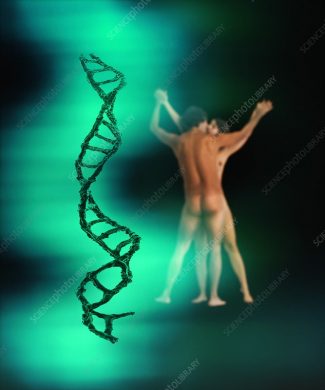It’s unlikely that there’s such a thing as a “bdsm gene”, any more than it seems likely there is a single “gay gene”. However, it’s plausible, though not proven, that there are genetic factors that in combination predispose some people in some cultures into adopting the homosexual role defined and allowed by that culture.[i]
Similarly, it’s plausible that a combination of genetic factors predispose some people to be aroused by pain, restraint or dominant-submissive relationships, and to channel that arousal in sexual directions.
This doesn’t mean that some people are born to be involved in bdsm. It’s rather that they are more likely than other people to recognize and respond to situations with bdsm overtones, for example watching or getting a childhood spanking, or a television or film scene in which a character gets tied up. These experiences can be called “bdsm signals”.
They can be real-life experiences, but bdsm signals are common in advertising, films and music videos. Some people with this genetic disposition may never encounter a signal that catches their attention and triggers their interest. In that case, they probably won’t experience this kind of arousal, and that genetic possibility will go unexplored.
Others, who have both the genetic predisposition and the awakening experience that comes from the culture’s bdsm signals, are more likely to become interested in bdsm.
I once talked about this with a woman who had watched Goldfinger on late-night TV with a group of friends.
There’s a notorious moment where Sean Connery smacks Margaret Nolan (who plays a character called “Dink”) on the arse, after sending her away because he wants to talk to Felix Leiter. “Man talk.”
Everyone else was shocked at the bizarre sexism of the scene, which hasn’t aged well, and she was sitting there quietly thinking, Sean Connery can smack my arse any time he likes. It was one of those “that’s when I knew I was different” moments.
If there is a genetic predisposition it’s almost certainly carried across a range of genes rather than a single one, and it’s unlikely that those genes will be identified any time soon.
Still, it seems plausible that the culture provides people with bdsm signals, which they may or may not see or notice. And that some of those who observe the signal may for genetic reasons sexualize dominance and submission more easily than others do. In this very limited and partial sense some of us may be born that way.
[i]Richters, Juliet, “Understanding Sexual Orientation: A Plea for Clarity”, Reproductive Health Matters, Volume 6, Number 12, 1998, pp 146-147.


